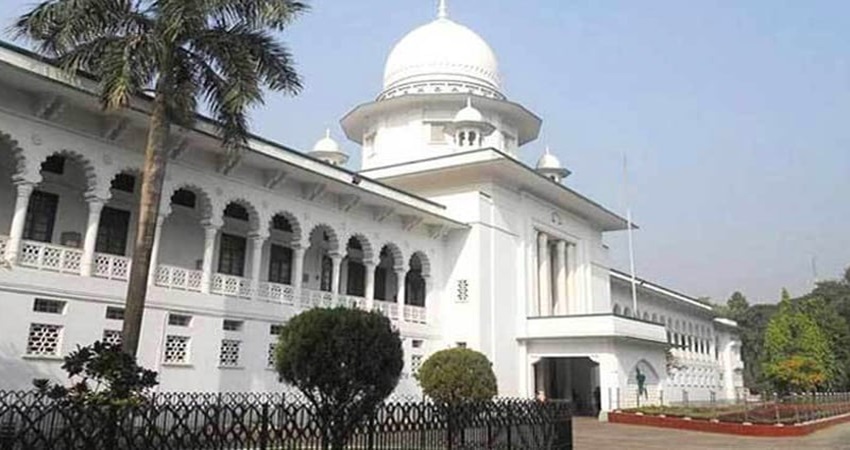Online Report
The Appellate Division of the Supreme Court of Bangladesh has granted leave to appeal a landmark case challenging the annulment of the caretaker government system—rekindling national debate over electoral integrity and constitutional governance.
The full hearing is scheduled for October 21 this year.
The order was issued on Wednesday by a seven-member bench of the Appellate Division, headed by Chief Justice Syed Refaat Ahmed.
During the second day of the review hearing, the Chief Justice clarified that the Court is not inclined toward temporary fixes, such as reinstating the caretaker system solely on an interim basis. Rather, the judiciary emphasized the need for a permanent, constitutionally grounded, and effective framework to ensure future electoral fairness and long-term political stability.
The bench posed critical questions regarding the feasibility of implementing any such verdict, asking: “If we restore the caretaker government, when would it come into effect?”—highlighting the Court’s concern with legal precision and practical applicability.
In response, Attorney General Md. Asaduzzaman presented a broader socio-political context, arguing that the people of Bangladesh have endured over 15 years of misgovernance, characterized by enforced disappearances, extrajudicial killings, political repression, and weakened democratic institutions. These failures, he asserted, culminated in the mass uprising of 2024, through which citizens reclaimed their democratic rights—including the authority to influence key appointments such as the Chief Justice and interim government leadership.
The Attorney General warned that ignoring the public mandate could trigger renewed unrest. Drawing parallels with the 1990 mass movement, which had ushered in democratic reforms and the original caretaker system, he stressed that respecting the people’s will is essential to national stability.
The caretaker government system was formally introduced through the Thirteenth Amendment to the Constitution in 1996, designed to ensure neutral, non-partisan oversight of general elections. Under this system, an interim administration would take charge during election periods to guarantee fair and impartial voting.
However, the system was abolished in 2011 via the Fifteenth Amendment, following a Supreme Court verdict that upheld its removal. Since then, elections have been held under ruling political governments, prompting ongoing concerns about electoral bias and transparency.
In recent developments, a writ petition was filed in the High Court by three senior lawyers, including Advocate M. Salim Ullah, challenging the constitutionality of the 2011 abolition and calling for the restoration of the caretaker framework.
The upcoming hearing holds potentially far-reaching constitutional implications. Possible outcomes include reinstatement of the caretaker government system, a directive to Parliament to devise a new, impartial electoral oversight mechanism and or a reaffirmation of the current system, possibly with significant reform recommendations.
The Court’s deliberate and cautious stance reflects a broader aim: to avoid short-term compromises and instead lay the groundwork for a durable, democratic electoral process.
The Appellate Division’s decision to hear the appeal represents a critical juncture in Bangladesh’s constitutional journey. As the nation looks toward the October 21 proceedings, the judiciary assumes a central role in shaping the future of democracy, accountability, and the rule of law.


